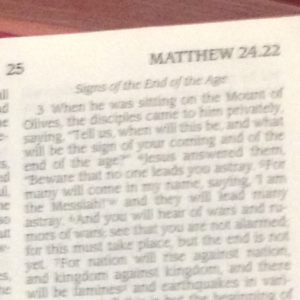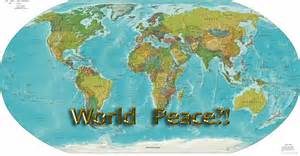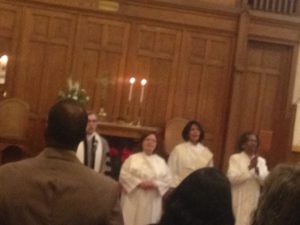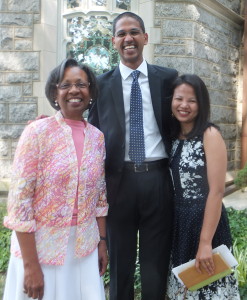Rev. Jana Purkis-Brash – January 8, 2017 – Matthew 24:1-31
 Is this passage anyone’s favorite passage of scripture? Heavy reading isn’t it? It takes me back to time spent with my conservative Baptist grandmother who often lamented that we were moving into the end times, the signs were all around us.
Is this passage anyone’s favorite passage of scripture? Heavy reading isn’t it? It takes me back to time spent with my conservative Baptist grandmother who often lamented that we were moving into the end times, the signs were all around us.
I came to this passage in response to my Annual Conference experience this year. Back in May, New Jersey United Methodist laity and clergy met for Annual Conference. This year our theme for the conference was “Imagine.” Our Bishop, John Schol called us to imagine a new generation of disciples, vital congregations and a transformed world at the 2016. For me one of the most meaningful parts of the conference was a presentation by Dr. Robin DiAngelo who helped us imagine a world without racism. It was revealing and challenging. She challenged United Methodists to develop the skills and mindset necessary to create a world free of racism. As Skitch, Catherine and I thought about how we as your pastoral team would begin 2017 we felt led to consider what God might imagine for us, for the world, thinking about Peace on earth, all are welcome, all are equal, and all creation in harmony.
,Yet, Is peace possible in a world like this?
That is a question many people are asking, it’s the topic of conversation at lunch tables in Panera and in the nail salon. Don and I even heard a group of 3 or 4 older men seeking an answer to the question this past summer on the boardwalk.
Today, let’s look at what the Gospel according to Matthew says as we consider world peace.  The 24th chapter of Matthew’s gospel is filled with Jesus’ predictions about the future. Let me set the scene for you. The disciples had been admiring Solomon’s massive and magnificent temple in Jerusalem. They must have been shocked when Jesus said, “That temple will be utterly destroyed. Not one stone will be left upon another.” Jesus’ prediction did come true forty years later, in the year 70 A.D. The Romans utterly destroyed Jerusalem. Matthew 24: verses 2 and 15 through 22, relates to those awful events of 70 A.D. Indeed, most of that chapter deals with the end of that period in history, the end of time.
The 24th chapter of Matthew’s gospel is filled with Jesus’ predictions about the future. Let me set the scene for you. The disciples had been admiring Solomon’s massive and magnificent temple in Jerusalem. They must have been shocked when Jesus said, “That temple will be utterly destroyed. Not one stone will be left upon another.” Jesus’ prediction did come true forty years later, in the year 70 A.D. The Romans utterly destroyed Jerusalem. Matthew 24: verses 2 and 15 through 22, relates to those awful events of 70 A.D. Indeed, most of that chapter deals with the end of that period in history, the end of time.
You may wonder why this passage// when thinking about whether there is hope for world peace?”
In verses 5 and 11, Jesus tells us that MANY FALSE MESSIAHS AND FALSE PROPHETS WILL APPEAR to deceive many people. Yes, false prophets and false gospels are all around us.
In verses 6 and 7, Jesus also predicted that there would be WARS AND RUMORS OF WAR until the very end. Today there are wars or rumors of war in many countries around the world – Syria, Turkey, DRC, Afghanistan, Sudan, the Middle East, Central Asia.
Jesus also predicted that before the end of time Christians would face MUCH PERSECUTION. We are told that more Christians were martyred in the 20th Century than in all of the previous nineteen centuries combined.
The Methodist bishop of Indonesia, reports that his congregations have to post a look-out during worship services. If a roving band of extremists finds a Christian congregation in worship, they will attack them, and the police do nothing. In virtually every country where Christians are a minority, they are persecuted.
Jesus also predicted that there would be AN INCREASE IN WICKEDNESS. But he also said, “Do not be alarmed, for the end is still to come.” Jesus wanted us to be alert and aware, but not fearful. Jesus doesn’t want us to despair or hide under a rock.
Britain’s wartime leader Winston Churchill was once invited to present the graduation address at a local high school. He gave the shortest address on record, just three words, repeated three times. “Never give up! Never give up! Never give up!” God is also saying to us not to give up but to continue working for the salvation of the world.
What then can we then do to promote peace on earth and help God to cleanse this hurting conflicted world? Here are three things we can do:
- Pray for peace continually
- Participate in the political process
- Stand against prejudice, spread forgiveness, understanding and reconciliation
If this morning you feel the Holy Spirit urging you to be a peacemaker, then pray with me this prayer of St. Francis. Let us pray:
 Lord, make me an instrument of thy peace;
Lord, make me an instrument of thy peace;
Where there is hatred, let me sow love;
Where there is injury, pardon;
Where there is doubt, faith;
Where there is despair, hope;
Where there is darkness, light;
Where there is sadness, joy.
Amen.

